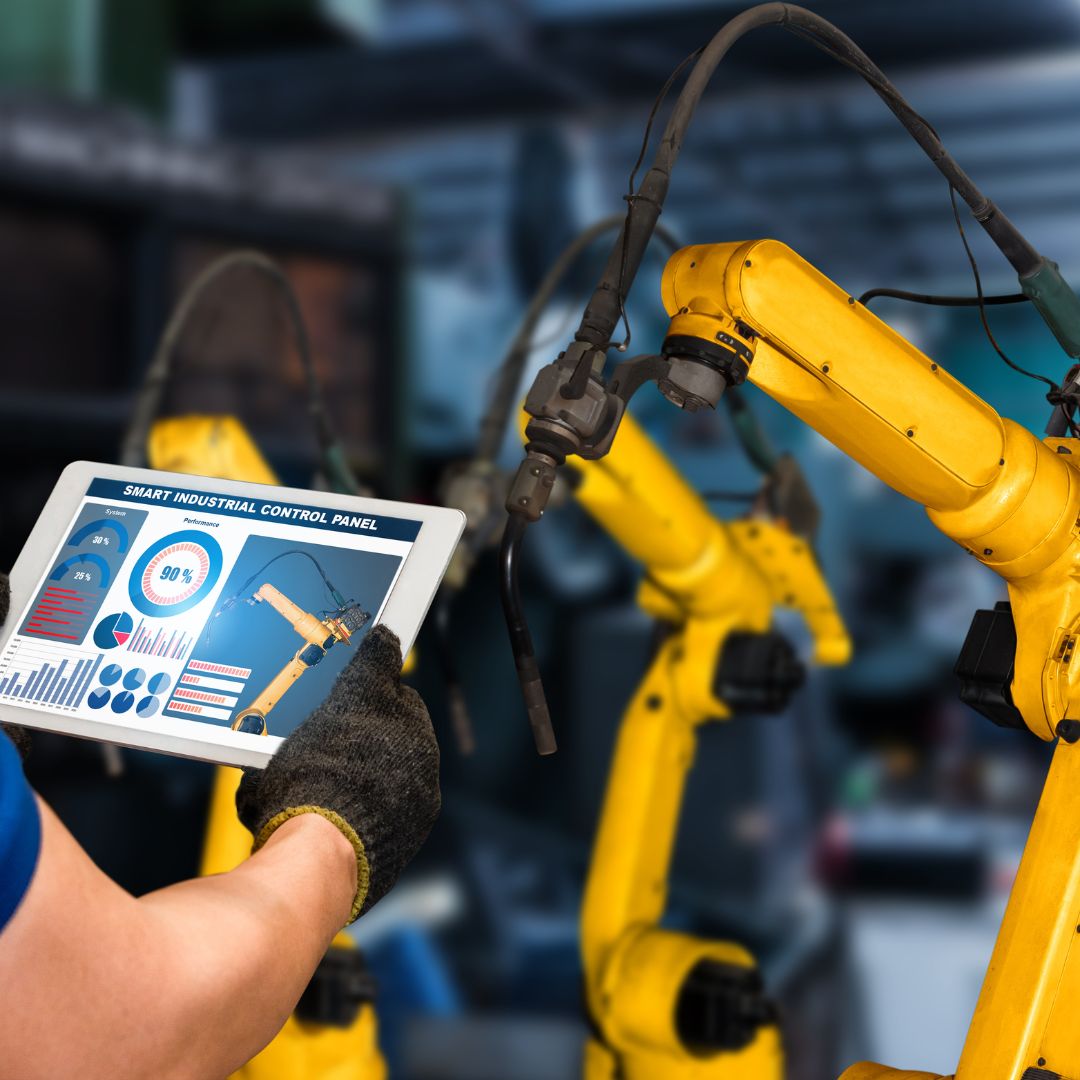In the automotive industry, where precision and efficiency reign supreme, the role of effective inventory management in manufacturing cannot be overstated. The management of thousands of components, from engine parts to electronics, demands not only precision but also adaptability.
In this article, we will explore the complexities of automotive inventory management, shedding light on innovative strategies poised to revolutionize established practices. In the end, you should gain profound insights into overcoming current challenges, leveraging technology, and embracing sustainable practices for a more resilient future.
Current Challenges in Automotive Inventory Management
The automotive industry, while resilient, grapples with multifaceted challenges in inventory management that require innovative solutions.
Supply Chain Disruptions
The automotive industry is intricately connected globally, relying on a vast network of suppliers for components and raw materials. Supply chain disruptions, whether due to natural disasters, geopolitical tensions, or unforeseen events like the COVID-19 pandemic, can have a profound impact on inventory management. For instance, a study by McKinsey & Company emphasizes the need for agility in the supply chain, pointing out that disruptions caused by events such as the COVID-19 pandemic underscore the vulnerability of traditional inventory management methods.
When a key supplier faces a disruption, it can lead to delays in production, shortages of critical components, and an imbalance in inventory levels. Navigating these disruptions requires robust contingency plans, close collaboration with suppliers, and the ability to quickly adapt to changes in the supply chain landscape.
High Product Variability
The automotive industry is marked by a wide range of vehicle models, each with its unique set of components and specifications. Managing inventory becomes challenging when there is high variability in the products being manufactured. Different models may require different parts, and forecasting demand for each variant accurately becomes a complex task. This variability can lead to overstocking certain components while facing shortages in others, impacting overall efficiency and cost-effectiveness.
Obsolete Inventory Management
With over 80 years in the automotive industry, we at FCC understand that this industry is characterized by rapid technological advancements. As new technologies emerge, older components and models can quickly become obsolete. Managing inventory that includes both current and obsolete parts poses a unique challenge. Obsolete inventory ties up valuable warehouse space, and it can be challenging to liquidate or repurpose these components. Additionally, the risk of stocking obsolete parts increases with the acceleration of technological innovations in the automotive sector.
The Need for Innovation in Inventory Strategies
In response to these challenges, the need for innovation in inventory management strategies becomes evident. Embracing innovative approaches is not merely a matter of staying ahead; it is a necessity for survival in an industry characterized by rapid advancements and unpredictable disruptions.
The Evolution of Inventory Management in Automotive
As the automotive industry navigates the complexities of its supply chain, traditional methods have played a pivotal role in shaping inventory management in manufacturing. However, understanding these methods and their limitations is crucial for paving the way for more efficient and adaptive strategies.
Manual Tracking Systems
Manual tracking systems, while once the cornerstone of inventory management, are characterized by inherent limitations. The reliance on manual data entry and physical record-keeping introduces the potential for human error, leading to inaccuracies in inventory counts.
Moreover, the time-consuming nature of manual tracking can result in delayed reporting, hindering the ability to respond swiftly to changes in demand or supply chain disruptions. In an era where speed and accuracy are paramount, the limitations of manual tracking systems become apparent, requiring a shift towards more advanced and automated methodologies.
Periodic Review Systems
Periodic review systems represent another traditional method wherein inventory levels are assessed at predetermined intervals. While this method simplifies the tracking process, it comes with inherent drawbacks.
One notable limitation is the potential for stockouts between review periods, as demand fluctuations may not align with the scheduled assessments. Additionally, periodic reviews can lead to overstocking, tying up capital in excess inventory that could be deployed more efficiently. In an industry where responsiveness to market dynamics is critical, periodic review systems fall short of providing real-time insights and adaptability.
Economic Order Quantity (EOQ)
The Economic Order Quantity (EOQ) model is a classic inventory management method that calculates the optimal order quantity to minimize total inventory costs. While EOQ provides a structured approach to balancing holding costs and order costs, it operates under several assumptions that may not align with the dynamic nature of the automotive industry. One limitation lies in the assumption of constant demand, which may not hold in a sector characterized by seasonal fluctuations and rapid changes in consumer preferences. Additionally, EOQ may overlook external factors such as supplier lead times and market trends, limiting its applicability in a fast-paced automotive landscape.
Just-In-Time (JIT) Inventory System
The Just-In-Time (JIT) inventory system represents a departure from traditional methods by aiming to minimize inventory levels and carrying costs. While JIT has proven effective in certain industries, its application in the automotive sector is not without challenges.
One notable limitation is the susceptibility to disruptions in the supply chain. Relying on minimal inventory leaves little room for error, and any disruptions in the timely delivery of components can lead to production delays and increased risks of stockouts. Achieving the delicate balance between lean inventory and operational resilience poses a constant challenge in the implementation of JIT systems.
The Role of Technology in Modern Inventory Management
The integration of technology marks a paradigm shift in automotive inventory management. Advanced inventory management systems leverage technologies such as RFID (Radio-Frequency Identification) and barcoding to enhance accuracy and efficiency. Technology adoption must be strategic, considering factors like implementation costs and staff training.
The Importance of Real-Time Data
Real-time data stands as a pivotal advancement in modern automotive inventory management. Its significance is underscored by its ability to provide instantaneous insights into inventory levels, demand fluctuations, and supply chain dynamics. A report by Deloitte emphasizes the transformative impact of real-time data in creating a responsive and agile supply chain.
Benefits of Real-Time Tracking
The real-time monitoring and analysis of inventory data revolutionize operational efficiency, providing a strategic advantage to automotive businesses. Let’s delve into five distinct benefits of embracing real-time tracking in automotive inventory management.
Improved Accuracy in Inventory Levels
Real-time tracking ensures a more accurate representation of inventory levels at any given moment. Unlike periodic review systems or manual tracking, which may lead to discrepancies due to delays or human error, real-time tracking provides instantaneous insights. This heightened accuracy facilitates precise demand forecasting and order management, minimizing the risks associated with stock outs or overstocking. The result is a finely tuned inventory that aligns seamlessly with fluctuating market demands.
Reduced Lead Times and Enhanced Responsiveness
The immediacy of real-time tracking translates into significantly reduced lead times throughout the supply chain. Automotive companies can swiftly respond to changes in demand, emerging market trends, or unforeseen disruptions.
With up-to-the-minute information on inventory status, decision-makers can adjust production schedules, reorder supplies, or implement changes in distribution strategies promptly. This agility is a crucial asset in an industry where time sensitivity can make the difference between meeting market demands and falling behind the competition.
Optimized Resource Allocation
Real-time tracking provides a granular view of resource utilization within the inventory management in the manufacturing process. This transparency enables businesses to optimize resource allocation efficiently.
Whether it’s personnel, warehouse space, or transportation assets, real-time insights empower decision-makers to allocate resources based on current demand and operational requirements. As a result, businesses can streamline operations, reduce unnecessary costs, and ensure that resources are utilized most efficiently and cost-effectively.
Improved Customer Satisfaction
The ability to meet customer expectations in terms of product availability and delivery timelines is a critical factor in the automotive industry. Real-time tracking contributes significantly to enhancing customer satisfaction by ensuring that products are consistently in stock and ready for delivery.
Reduced lead times and accurate inventory forecasting mean fewer instances of delayed deliveries or backorders. This reliability fosters trust among customers and strengthens the brand’s reputation, contributing to long-term customer loyalty.
AI and Machine Learning in Inventory Management
As the automotive industry advances, the integration of artificial intelligence (AI) and machine learning (ML) emerges as a transformative force. Predictive analytics, a subset of AI, holds immense potential for optimizing inventory management.
Predictive Analytics for Demand Forecasting
Predictive analytics leverages historical data, market trends, and external factors to forecast demand with unprecedented accuracy. By employing sophisticated algorithms, automotive companies can anticipate fluctuations in demand, allowing for proactive inventory adjustments. In a study published in the Journal of Big Data, the ability of predictive analytics to enhance demand forecasting accuracy, minimizing the impact of market uncertainties.
Automated Sorting and Categorization
Automated sorting and categorization, facilitated by AI, further streamline inventory processes. This technology expedites the classification of diverse automotive components, reducing human error and ensuring efficient organization. The benefits extend beyond accuracy; automated systems enhance the speed of inventory turnover, optimizing warehouse space and overall operational efficiency.
Sustainable Practices in Inventory Management
In an era where environmental considerations are integral to corporate responsibility, inventory management in manufacturing must align with sustainable practices.
Environmental Considerations in Automotive Manufacturing
The environmental impact of automotive manufacturing is a growing concern. Research by the World Economic Forum emphasizes the need for sustainable practices, citing the carbon footprint of manufacturing processes and the disposal of end-of-life vehicles. Adopting eco-friendly materials, recycling initiatives, and energy-efficient manufacturing processes are crucial components of a sustainable inventory system.
Benefits of a Sustainable Inventory System
The benefits of incorporating sustainability into inventory management in manufacturing are multifaceted. Beyond meeting regulatory requirements, a sustainable inventory system contributes to cost savings through reduced waste and energy consumption. It also enhances brand reputation, aligning automotive companies with the evolving expectations of environmentally conscious consumers.
Conclusion
In the relentless pursuit of excellence, the automotive industry must embrace innovation, leveraging real-time data, AI, and sustainable practices for an agile and future-ready inventory management system. Let these innovative strategies not be mere concepts but catalysts for transformative action. The future of inventory management in manufacturing calls, and the time to adopt these strategies is now. Industry professionals are poised at the forefront of this evolution, where each strategic decision contributes to a more resilient and efficient supply chain, laying the foundation for sustained success in this dynamic sector.
Ready To Explore Innovative Solutions In The Automotive Industry?





